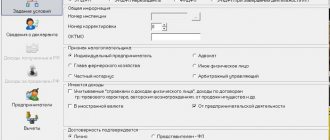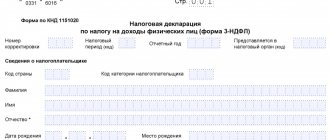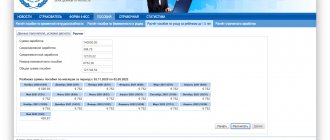It is worth mentioning that in the first letter the ministry directly states that the Tax Code of the Russian Federation does not provide for the possibility of third parties paying taxes on behalf of the taxpayer. This rule, in their opinion, also applies to close relatives.
In the second letter we see opposite conclusions. For property owned by a minor, the legal representative must bear the burden of paying taxes.
The contradiction is obvious. In the first letter, in support of its position, the Russian Ministry of Finance refers to paragraph 1 of Article 45 of the Tax Code of the Russian Federation. However, she directly says that the legislation on taxes and fees may provide for the possibility of paying taxes for the taxpayer.
This right is enshrined in Article 26 of the Tax Code of the Russian Federation, which states that a taxpayer can participate in relations regulated by the legislation on taxes and fees through a legal representative. Let us recall that the legal representatives of a minor are parents, adoptive parents or guardians (Articles 26, 28, 32, 33 of the Civil Code of the Russian Federation).
Who receives child benefits?
Employees who are residents of the Russian Federation and have supported children are entitled to children's personal income tax deductions. Deductions are provided to parents and their spouses, adoptive parents and their spouses, adoptive parents, guardians or trustees of children. Deductions are provided for each child under the age of 18 and for each full-time student (graduate student, resident, student, intern, cadet) under the age of 24.
In the case of students, deductions are provided only during the period of study of children (academic leave issued in the prescribed manner is also included in the period of study). If the child completed his studies before reaching 24 years of age, then from the month following the month of graduation, the deduction is no longer provided (letter of the Ministry of Finance of Russia dated November 11, 2021 N 03-04-06/91050, dated December 22, 2020 N 03-04-05/ 112670).
Every parent (including adopted parents) has the right to a “children’s” deduction. By agreement of the parents, a double deduction may be provided to one of them. In such a situation, one of the parents must refuse the deduction (this fact must be confirmed by a statement). Also, the only parent (adoptive parent, guardian, trustee) has the right to double deduction.
Calculate personal income tax online in Kontur.Accounting in a few clicks Get free access for 14 days
Controversial situations arise during divorce:
- The parent with whom the child remains has an unconditional right to the deduction;
- the other parent has the right to a deduction only if he pays child support;
- if the alimony-paying parent remarries, his new spouse also has the right to a deduction (Letter of the Ministry of Finance dated August 10, 2016 N 03-04-05/46762);
- children born into the families of new spouses are added to the children who were before the marriage. Those. if there are two children and another baby appears in the new family, a deduction for him will be provided as for the third child. However, if the marriage of cohabitants is not registered, each of them counts the children separately.
If the child is working or living separately, but is under 18 years of age or studying full-time, the parent is still entitled to the standard tax deduction.
Deduction through employer
Tax deductions - both social and property - can be obtained through the employer, but you must first confirm this right with the Federal Tax Service. The advantages of this method are that:
- parents do not need to wait until the end of the calendar year;
- parents do not need to prepare and send a declaration in form 3-NDFL to the tax authority;
- the employer is obliged to provide the employee with a deduction from the beginning of the calendar year, regardless of the month in which the notice confirming the right to the deduction was issued. In addition, if the employer has already withheld tax, then he is obliged to recalculate from the beginning of the year and return to the employee the amount confirmed by the tax authority.
Read on topic: Instructions: how to file a tax refund declaration online
Amounts of deductions for children in 2022
In 2022, the same deductions that were in effect previously should be applied:
- for the first and second child - in the amount of 1,400 rubles;
- for the third and each subsequent child - 3,000 rubles;
- for a disabled child to parents, adoptive parents and their spouses - 12,000 rubles;
- for a disabled child, guardians and trustees - 6,000 rubles.
An increased deduction for a disabled child aged 18 to 24 years, a full-time student, is provided only if there is a disability group I or II.
The deduction for a disabled child is summed up with the deduction “based on the number of children.” For example, for the only child of a disabled person, the deduction will be 13,400 rubles - 12,000 rubles + 1,400 rubles. If the disabled child is the third, the total deduction will be 17,800 rubles (1,400 + 1,400 + 3,000 + 12,000) (clause 14 of the Review of judicial practice under Chapter 23 of the Tax Code of the Russian Federation, approved by the Presidium of the Armed Forces of the Russian Federation on October 21, 2015, Letters Ministry of Finance of the Russian Federation dated November 7, 2019 No. 03-04-05/85821, dated March 20, 2017 No. 03-04-06/15803).
Single parents are entitled to double the amount of “children’s” deductions. If this parent marries, deductions will again be provided at a single rate from the month following the month of marriage.
Payment upon notification
For each taxable item, a tax notice is generated, which is sent to the citizen no later than 30 working days before the payment deadline (paragraph 2, paragraph 2, article 52 of the Tax Code of the Russian Federation; paragraphs 1, 2, article 409 of the Tax Code of the Russian Federation). Tax payment is made on the basis of this notification (clause 4 of article 57 of the Tax Code of the Russian Federation). Tax authorities can calculate tax for the three previous calendar years. For example, a tax notice sent in 2015 may include tax amounts assessed for the previous years 2012, 2013, and 2014.
The tax must be paid no later than October 1 of the year following the year for which the tax was calculated.
note
Federal Law No. 52-FZ dated April 2, 2014 amended the Tax Code of the Russian Federation, in particular Article 23 was supplemented with clause 2.1.
From January 1, 2015, the taxpayer has an obligation, before December 31 of the year following the expired tax period, to submit to the tax authority a message about each taxable item for which a tax notice was not received, with copies of title documents attached. The message is sent once. The exception to this rule will be cases where a tax notice is not received due to the existence of a right to a tax benefit.
If the property tax is not paid on time, the taxpayer faces penalties (Clause 1, Article 75 of the Tax Code of the Russian Federation), a fine (Article 122 of the Tax Code of the Russian Federation), as well as collection of tax arrears (arrears).
Income limit for child deductions
In 2022, deductions for children are provided only until the employee’s income, taxed at a rate of 13%, from the beginning of the year does not exceed 350,000 rubles . There was a proposal from officials to increase the limit to 400,000 rubles, but so far it has been rejected. Starting from the month when the employee’s income exceeds the specified amount, the provision of these deductions ceases. Payments not subject to personal income tax are not taken into account as income when providing standard deductions.
Example of calculating deduction for a child
An employee of the organization, Ivan Petrov, is the parent of a minor child. He is provided with a standard deduction of 1,400 rubles. Petrov got a job with the organization in April. His income from his previous place of work from January to March was 75,000 rubles.
Petrov’s salary is set at 40,000 rubles per month, which means in this case his income will exceed 350,000 rubles in October (including income from his previous place of work). From April to September he is provided with a deduction of 1,400 rubles, but from October this deduction is not provided.
To determine the income limit, take into account only the income of residents, subject to personal income tax at a rate of 13% (except for dividends). Income that is partially exempt from personal income tax should be included in the calculation only in the taxable portion. For example, the provision of financial assistance in the amount of up to 4,000 rubles per year is not subject to personal income tax. If you gave the employee more, then include the excess amounts in the base. Do the same with daily allowances over 700 rubles, gifts over 4,000 rubles, and financial assistance at the birth of a child over 50,000 rubles for each child.
Special rules apply for external part-time workers. Such employees can choose for themselves which place of work to receive the deduction. To do this, they must submit to the employer a written application and documents confirming his right to the deduction. There is no need to take into account the income that the employee receives in another place of work. You simply calculate the personal income tax from his salary in your company and reduce it by the amount of the deduction, transferring it to the employee.
Is it necessary to provide a deduction if the employee has no income? If in certain months the employee did not receive income taxed at a rate of 13%, then deductions should be provided to him in subsequent months, including for those months in which income was not received. Moreover, if the payment of income is completely stopped and does not resume until the end of the year, no deduction is allowed for such months (Letter of the Ministry of Finance dated October 30, 2018 No. 03-04-05/78020, dated September 4, 2017 No. 03-04-06/56583). If an employee is on parental leave, the deduction is not provided from the beginning of the year until the month in which the employee returns from leave.
Property tax deduction
When purchasing real estate (apartment, room, land plot for individual housing construction), you can receive a deduction in the amount of 260,000 rubles. When using credit funds, you can also receive a deduction of 390,000 rubles from the interest actually paid. If the property is owned by a minor child or in the common shared ownership of a parent (parents) and a minor child (children), then the parents have the right to receive a deduction on behalf of minor children if the latter do not have official income taxed at a rate of 13%. In general, a minor may have income if he is declared fully capable (emancipation).
It is important to note that children do not lose their right to receive a tax deduction in the future. That is, if they acquire property and have income, they can receive a tax deduction despite the fact that the parents already received it at one time.
To receive a deduction, you must prepare a declaration in form 3-NDFL, an application for a refund of overpaid tax and attach all the necessary documents (purchase agreement, transfer and acceptance certificate, certificate of registration of ownership, certificate in form 2-NDFL, payment documents) .
The tax deduction for one tax period cannot exceed the amount of tax withheld from wages at a rate of 13%.
Read on topic: Instructions: how to get a tax deduction for housing and mortgages
How the amount of the deduction depends on the number of children
When determining the amount of the deduction, the total number of children is taken into account. That is, the first child is the oldest in age, regardless of whether a deduction is currently provided for him or not. The order of children is determined in chronological order by date of birth (letters from the Ministry of Finance of Russia dated November 8, 2012 No. 03-04-05/8-1257, dated April 3, 2012 No. 03-04-06/8-96). The amounts of deductions for disabled children are summed up with ordinary deductions depending on the child’s priority (clause 14 of the Review, approved by the Presidium of the Supreme Court of the Russian Federation on October 21, 2015, letter of the Ministry of Finance of Russia dated March 20, 2021 No. 03-04-06/15803 ).
Example of calculating deduction for children
An employee of the organization, Maria Sidorova, is the parent of three children aged 25, 15 and 10 years. Deductions will be provided to her as follows:
- for the first child aged 25 years - no deduction is provided;
- for a second child aged 15 years - a deduction of 1,400 rubles;
- for a third disabled child aged 10 years - a deduction of 3,000 + 12,000 rubles.
The Ministry of Finance answered this question by developing draft amendments to the Tax Code of the Russian Federation, the text of which was reviewed by RBC.
Photo: www.journal.n1.ru
The agency proposes to exempt Russians with children from paying personal income tax (NDFL, or income tax) in the amount of 13% of the amount they received from the sale of a room, apartment, residential building, part of an apartment or house, regardless of the period of stay of the property in property.
However, the financial department proposes to do this provided that home sellers comply with six conditions:
Photo: www.buhguru.com
1) the taxpayer or his spouse are the parents of two or more minor children (or children under 24 years of age if they are studying full-time);
2) new real estate must be purchased in the same calendar year in which the old one was sold, or no later than April 30 of the following year;
3) if we are talking about an agreement for shared participation in construction (DDU), then full payment must be made under the agreement;
4) the total area of the purchased premises or its cadastral value must be greater than that of the sold property;
5) the cadastral value of the sold housing should not exceed 50 million rubles;
6) at the time of the sale of residential premises, neither the taxpayer nor his children should own other housing, the total area of which exceeds 50% of the area of the purchased housing.
Photo: www.ria.ru
The above amendments to tax legislation from the Ministry of Finance were a consequence of the fact that last summer Russian President Vladimir Putin called for exemption from the obligation to pay income tax on the transaction for families who decided to acquire new (more spacious) housing after the birth of their second or subsequent children.
In accordance with current legislation, today when selling housing worth more than 1 million rubles. Citizens of the Russian Federation in some cases must pay income tax in the amount of 13% of the difference (profit) received between the sale price of an old home and the purchase of a new one, provided that the second is less than the first.
Photo: www.yandex.ru
Taking this into account, Vladimir Putin instructed the Government and the State Duma to develop amendments by December 1 to eliminate this injustice for families with two or more children. But, according to the authorities, not all such families should receive a tax break, but only those planning to improve their living conditions by selling one apartment to buy a new one within one year.
It is expected that the amendments proposed by the Ministry of Finance to the Tax Code will come into force on the date of official publication of the relevant federal law and will apply to income received from the sale of housing, starting from the 2021 tax period.
Photo: www.culture.ru
Meanwhile, according to the head of the property relations practice at Amulex, Galina Gamburg (pictured), the requirement to simultaneously comply with five conditions reduces the number of potential recipients of the benefit.
“Few taxpayers fall under these criteria (especially all at once), and such a tax break is unlikely to affect the general population,” the lawyer explained.
Photo: www. society.hozvo.ru
She also noted that the majority of real estate sellers in the Russian Federation do not pay income tax, maintaining the tenure period that provides such a benefit (three or five years under current Russian legislation) or proving the predominance of expenses for the purchase of a new apartment over the income from the sale of the old one.
This is not difficult if the purchase and sale transaction is properly executed and mortgages are popular, the expert explained.
Other publications on the topic:
Obtaining a personal income tax deduction will be simplified as much as possible by transferring the procedure to an online format
Income of citizens from the sale of real estate in the amount of more than 5 million rubles. will be exempt from paying increased personal income tax, leaving them with a rate of 13%
Will Russians who sold their previous home to buy an apartment in a standard new building be exempt from paying personal income tax?
Certificate 2-NDFL for a mortgage is no longer needed
The period during which you can resell housing without paying personal income tax has been reduced from five to three years







